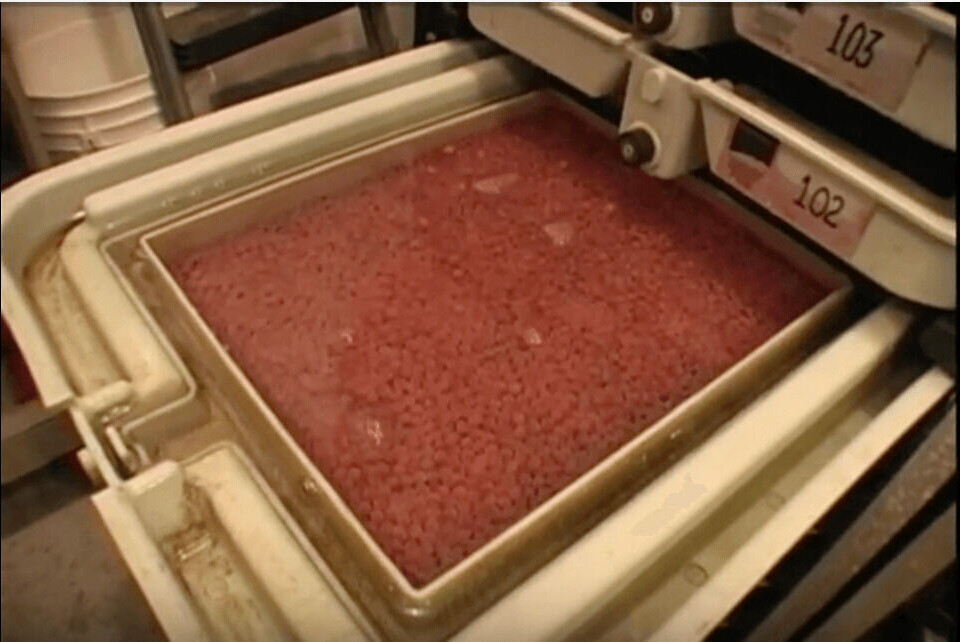
Salmon enhancement a top priority
Salmon farming companies in BC have made it a collective priority to restore and rebuild damaged wild salmon habitat around Vancouver Island, and this is no better demonstrated than by Marine Harvest Canada.
Wild salmon are an icon in BC. However due to overfishing, habitat destruction and lately, warming waters, wild salmon populations have been in peril. Enhancing populations and rebuilding habitat are two critical features of salmon enhancement projects.
Last month, Marine Harvest Canada (MHC) delivered a cheque of $3000 to the volunteer group at the Goldstream Salmon Enhancement Association (Howard English Hatchery), on South Vancouver Island.
The salmon enhancement project will include the installation of new tanks to provide more rearing space for juvenile coho salmon. The salmon smolts will enhance local watersheds and help provide for recreational and food fishing opportunities in the area.
MHC has supported several improvement projects at this salmon enhancement facility over the past two decades, including providing the egg rearing (heath) trays for the hatchery’s incubation room.
Ian Roberts, Communications and Media Officer for MHC, commented on the importance of sharing knowledge among different sectors of the industry: "Whether you're raising salmon at a farm, ranch, or enhancement facility, it is aquaculture. And it's important for everyone involved in aquaculture to share knowledge and best practices."
In addition to the Goldstream Salmon Enhancement Association, this year alone, MHC has contributed (by cash or in-kind donations) to the Quatse River Salmon Enhancement, the Campbell River Salmon Foundation, the Pacific Salmon Foundation, the Fanny Bay Salmon Society, the Oyster River Enhancement Society, and the Tsolum River Restoration Society.
Failing salmon returns at various locations on Vancouver Island, largely due to logging and habitat destruction, catalyzed the creations of many salmon enhancement facilities. This was especially true for the Oyster River Enhancement Society, which “was formed in 1983 by a small group of concerned citizens in an attempt to revitalize the decimated Oyster River."
Thousands of hours of dedicated volunteer work are being brought to fruition as the river now is seeing returns nearing historic levels.
Efforts include additional stocking of cultured salmon and rehabilitation of the habitat from decades of human impacts – but raising fish is not cheap, and donations of equipment and expertise by MHC are essential for continued success of enhancement projects.
"The equipment used by Canadian salmon farmers is quickly evolving, so what becomes old to us, may be like new to salmon enhancement facilities that run on a limited budget."
Donated equipment by MHC over the past decade has included rearing tanks, feeding machines, egg incubation trays, and grow-out netpens.
The Marble River Hatchery has benefited greatly from these donations. “MHC donated all the net-pens and feeders… they have become a part of the solution to help the returns of the [chinook] stocks in the Marble River Systems”, said Deb Anderson from the Marble River Hatchery. Since the 1982, the hatchery has seen significant increases in the returns of chinook salmon to the watershed.
There are many examples of success stories of salmon enhancement projects restoring wild salmon populations on Vancouver Island.
The Tsolum River saw the largest returns of pink salmon this fall, which can be attributed to the hard work and dedication by the Tsolum River Restoration Society, and over the years, work by the Campbell River Salmon Foundation has been pivotal in opening up spawning grounds and habitat suitable for salmon fry. The Campbell River is arguably one of the biggest sport fishing rivers on Vancouver Island, supporting populations of pink, chum, coho, Chinook, and sockeye salmon, as well as steelhead and cutthroat trout.
"Many of our staff are avid sport fishers, who may also volunteer at many of the salmon conservation operations on Vancouver Island. It's important for the company to be supporting our staff who volunteer their time in the communities where we live and work", said Roberts, "It's very rewarding to see the hard work of volunteers who are passionate about salmon pay off. Many rivers and streams around Vancouver Island that have had the help of dedicated volunteers bring them 'back to life' have witnessed plentiful returns of salmon in the last decade."























































